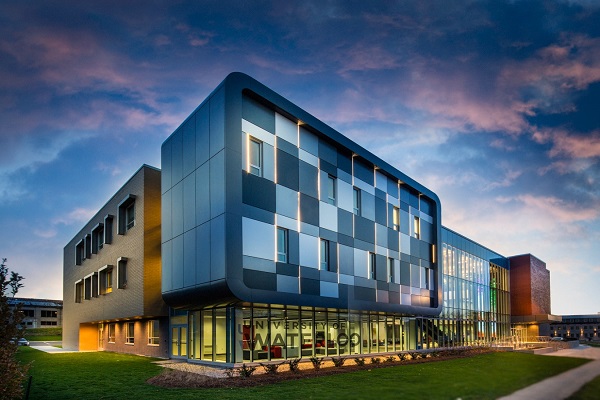University of Waterloo: Waterloo grads invest time and money in COVID-19 vaccine solutions
SARS-CoV-2, the strain of coronavirus that causes COVID-19, has continued to evolve at a rapid pace in the last two years, leading to the emergence of new, tougher variants and a surge in breakthrough infections of fully vaccinated and boosted people around the world.
As a result, there is a pressing need to develop new, safe, cost-effective vaccines that provide broader coverage and are accessible to people everywhere.
Fortunately, that is entirely possible thanks to trailblazing startup Refana, which has a strong connection to the engineering faculty, dating back to the 1980s.
A private corporation that researches practical solutions for complex and urgent global medical problems, Refana has designed a leading-edge vaccine technology called RefanaVax-MV that uses a Whole Inactivated Virus (WIV)-based approach to create a SARS-CoV-2 vaccine.
Two graduates of Waterloo Engineering Mark Turchan (BASc ’83, systems design engineering, MASc ’85, systems design engineering) and his brother Glenn Turchan (BASc’ 87, geological engineering, MASc ’90, civil engineering) are early investors in the company.
The Turchan brothers stand in front of the Waterloo Engineering sign by E7
Born and raised in the Kitchener-Waterloo area, they are actively involved in shaping the US-based company’s future, with Mark serving as the acting chief operating officer and Glenn using his vast consulting experience to act as an advisor to the firm’s management team.
“Our investment is part of what University of Waterloo’s Faculty of Engineering built into our problem-solving DNA,” says Mark.
“It is all about solving big problems that can have a tremendous positive impact on the world while getting rewarded for doing so,” Glenn adds.
RefanaVax-MV is described as an easy-to-adjust multi-valent “vaccine cocktail.”
Unlike previous mono-valent vaccines already in use to protect against a single variant of the virus, multi-valent vaccines will protect against multiple SARS-CoV-2 variants at the same time.
RefanaVax-MV is designed as a tri-valent vaccine, therefore protecting against three variants. For example, Delta and Omicron, as well as the next dangerous variant to emerge.
Following a proven scientific development approach, the WIV vaccine is derived from a chemically-neutralized version of the whole virus (non-active or contagious) covering its full genetic structure, to provide better coverage overall.
It has other important advantages as well, including lower costs and easier distribution. WIV designs are also safe; they are based on long-standing successful vaccine design solutions in use for decades across multiple diseases.
In addition, Refana has designed a modular manufacturing system that uses automated bioreactor technologies, allowing for less expensive capital investment and lower operating costs, even for production batches as small as 40 million doses per year.
That makes localized manufacturing – especially in less-developed countries – more feasible, making vaccine technology more accessible to many parts of the world that do not have access to it. It also reduces the developing world’s reliance on larger biotechnology companies and their large batch production facilities that are situated primarily in the developed world.
The RefanaVax-MV vaccine was developed in 2021-22 in co-operation with the Illinois Institute of Technology Research Institute (ITTRI) in Chicago. The work was recently presented at the American Society for Virology (ASV) Conference.
Refana logoRefana, which takes its name from a Hebrew term that translates to ‘please heal’ in English, also continues this work with a further quest to develop a single, pan-coronavirus vaccine – also known as a ‘universal vaccine’ – using computational genomics and artificial intelligence. This is a ‘next-gen’ vaccine solution.
“What we are doing is incredibly important, given that there are still over three billion people in the world who are not fully-vaccinated against SARS-CoV-2,” says Mark. “The vaccine technology platforms being developed by Refana would be useful in fighting SARS-Cov-2, and possibly future virus pandemics, according to the virology community of experts.”
“We are two brothers with two sets of engineering degrees who had two separate careers, coming together to help the world get back to normal and hopefully be a better place,” says Glenn.

